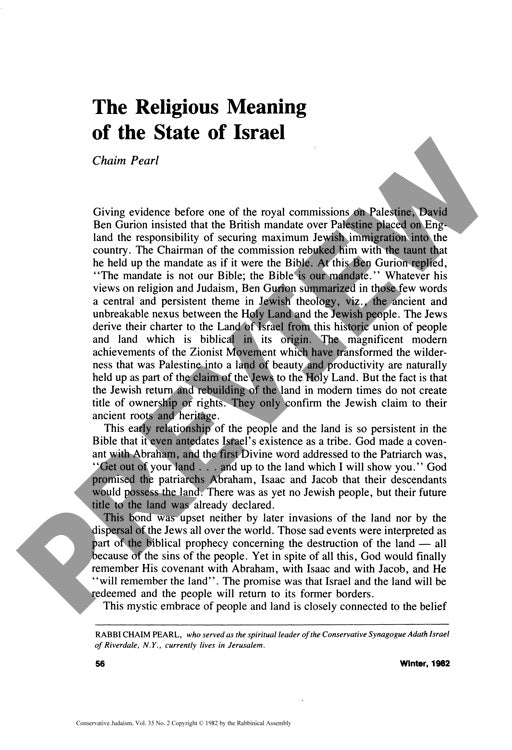The Religious Meaning of the State of Is
Couldn't load pickup availability
The modern State of Israel carries profound theological weight within Jewish religious thought, challenging scholars and practitioners to reconcile ancient covenantal promises with contemporary political realities. Through analysis of biblical texts, rabbinic literature, and modern Jewish responses, three critical theological dimensions emerge: the enduring covenant between God, the Jewish people, and the Land of Israel; the widespread interpretation of Israel's modern establishment as divine historical intervention, particularly after the 1967 Six-Day War; and the messianic implications of Israel's rebirth. Even self-described agnostic Jews have interpreted Israel's military victories as miraculous manifestations of divine providence, aligning with classical Jewish historiographical perspectives. Yet problematic interpretations persist, from religious extremists advocating unchanged restoration of Temple practices to aggressive nationalists abandoning ethical considerations. A hermeneutical examination reveals that Israel's deepest religious significance lies not in ritual restoration but in fulfilling Judaism's prophetic mission to exemplify justice, compassion, and peace. Without moral commitment to these universal values, the Zionist enterprise fails to achieve its theological purpose as a "light unto the nations."

More Information
-
Physical Description
-
Publication Information
Published 1982
ISBN
-
Publication Credits
Chaim Pearl

